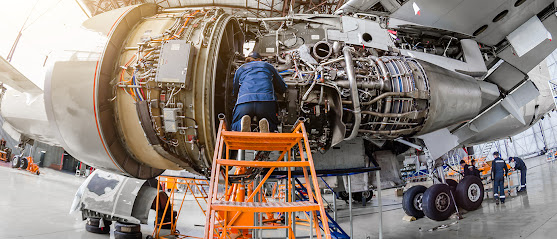Aeronautical Engineering Career Options, Work Profile and key skills
Aeronautical engineers can design, develop, test, and help manufacture commercial and military aircraft, missiles, and spacecraft. Aeronautical engineering courses also develop and design extraordinary technologies such as supersonic jets, helicopters, space shuttles, satellites, and rockets.
Aeronautical Engineers are trained to design aircraft. Their main job includes designing aircraft and propulsion systems and studying the aerodynamic performance of aircraft and construction materials. After completion of Aeronautical various job openings are there in the manufacturing of Aircraft, Aircraft Propulsion, Aircraft Systems. Aeronautical engineering governing body and is approved by AICTE.
There are multiple fields of specialization available in the field of aeronautical engineers. Aeronautical engineers will design and develop new systems and products. Aeronautical test engineers coordinate the testing and performance of aircraft. Aerodynamic specialists focus on areas such as aerodynamics, thermodynamics, and concept prototypes and structural engineers may allocate themselves to the structural design and navigation of an airplane, and others may investigate aircraft system failures and crashes, to prevent accidents from being in the future and to ensure the highest position of safety possible.
The aeronautics industry in India has come up as one of the fastest-growing industries in the country during the last 3 years. India has the 3rd largest domestic aeronautics demand in the world and is expected to catch the UK to run the 3rd largest air passenger market by 2024. A lot of companies start manufacturing Aircraft and Aircraft spares in India. There are a lot of openings for Aeronautical Engineers in the manufacturing and airline industry With middle-class people taking to the skies against the background of economic airfares, the Indian aeronautics market has grown at an average rate of 15% over the last decade.
After Completion of the Aeronautical Engineering Course candidate can work in the below-mentioned industry-
Airlines- Airlines give transport service to all the passengers across India and throughout the globe at various destinations. multiple openings are there for students after Completion of Aeronautical Engineering.
Maintenance Repair Overhaul - MRO performs all the maintenance from minor to major for all the flying aircraft, carrying out maintenance on the airframe, jet engine, piston engines, electrical, Radio, Instruments, and various other systems of aircraft. Like airlines, a lot of job openings are there for students after Completion of Aeronautical Engineering.
Aircraft Manufacturing Company- Aircraft manufacturing companies such as Boeing, Airbus, Cessna Aircraft, Bombardier, and Dassault falcon deal in the manufacturing of aircraft and aircraft systems also give job openings to Aeronautical Engineers.
Aircraft Spares Manufacturing Companies- Spares manufacturing companies work in the manufacturing of various aircraft parts, many companies such as General Electric, Honeywell, Pratt & Whitney, Rolls-Royce work in the manufacturing of aero engines and also hire Aeronautical Engineers.
Civil Aviation Department and Defence- Civil Aviation Department, Director General of Civil Aviation, the defense Air force also hire Aeronautical Engineers.
Aeronautical Engineering Institutes/ Colleges/ Universities- Aeronautical Engineering Institutes also hired aeronautical Engineers as faculty for theoretical & practical training.
Research Organizations- NASA, ISRO, DRDO also hire Aeronautical Engineers.
Aviation Technical Publication Companies- Technical publication companies maintain various paperwork of airlines related to maintenance & flying. To maintain this paperwork, they hire Aeronautical Engineers.
Aeronautical Engineer Work Profile :-
Aeronautical engineers generally work in multidisciplinary engineering companies where responsibilities include
Assessing Design Requirements
Agreeing on Budgets, time scale, and specifications with Client and managers
Producing and executing designs and test operations
Undertaking theoretical and practical exploration
improving the performance of aircraft components, and systems
Assembling the aircraft and its factors
Testing, evaluating, modifying, and re-testing things
Writing reports manuals and documentation
Providing specialized advice
Investigating the cause of the airplane crash
Analyzing and interpreting data
Aeronautical Engineer's Key Skills:-
The work climate is multidisciplinary, so a clear convention of how Aeronautical Engineering relates to other engineering disciplines is all-important. Given the frequency of international partnerships, language skills are useful and the capability to work as part of a team is vital. Aeronautical engineers must also have Strong mathematical, analytical, and problem-solving skills.
specialized expertise
Creativity and innovational thinking
Attention to detail
Strong Mindfulness of safety issues
Communication chops verbal & spoken
Project & time management expertise
A commitment to observing up to date with specialized developments
capability to work under pressure and catch the deadlines




Comments
Post a Comment